The Evolution of FIFA Video Games: From Pixels to Realism
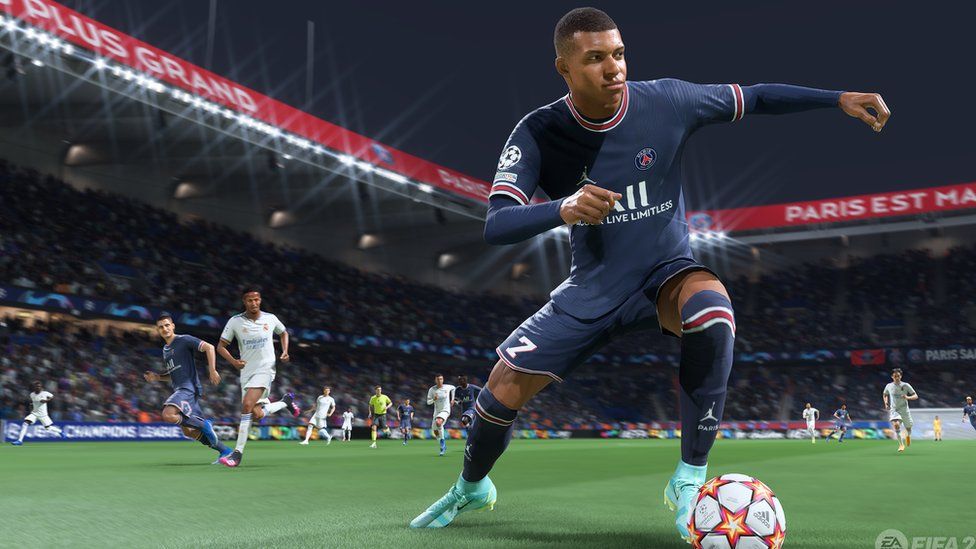 Since its inception in 1993, FIFA video games have become an integral part of the gaming industry, capturing the hearts of both football enthusiasts and gamers worldwide. Developed by EA Sports, the FIFA series has undergone significant transformations over the years, evolving from simple pixelated graphics to lifelike simulations that mimic the real sport. In this exploration, we delve into the journey of FIFA video games, tracing their evolution, highlighting key milestones, and examining the impact they've had on both gaming culture and the football community.
Since its inception in 1993, FIFA video games have become an integral part of the gaming industry, capturing the hearts of both football enthusiasts and gamers worldwide. Developed by EA Sports, the FIFA series has undergone significant transformations over the years, evolving from simple pixelated graphics to lifelike simulations that mimic the real sport. In this exploration, we delve into the journey of FIFA video games, tracing their evolution, highlighting key milestones, and examining the impact they've had on both gaming culture and the football community.
Early Beginnings: The Birth of FIFA
The first FIFA video game, simply titled "FIFA International Soccer," was released in December 1993 for platforms like the Sega Mega Drive/Genesis and Super Nintendo Entertainment System (SNES). Developed by EA Canada, the game offered a basic yet groundbreaking experience for its time. Players were introduced to rudimentary graphics and gameplay mechanics, but the essence of football was captured in its core.
Despite its simplicity, "FIFA International Soccer" laid the foundation for what would become a gaming phenomenon. The game's success paved the way for annual releases, with subsequent iterations introducing improvements in graphics, gameplay, and content.
Advancements and Innovations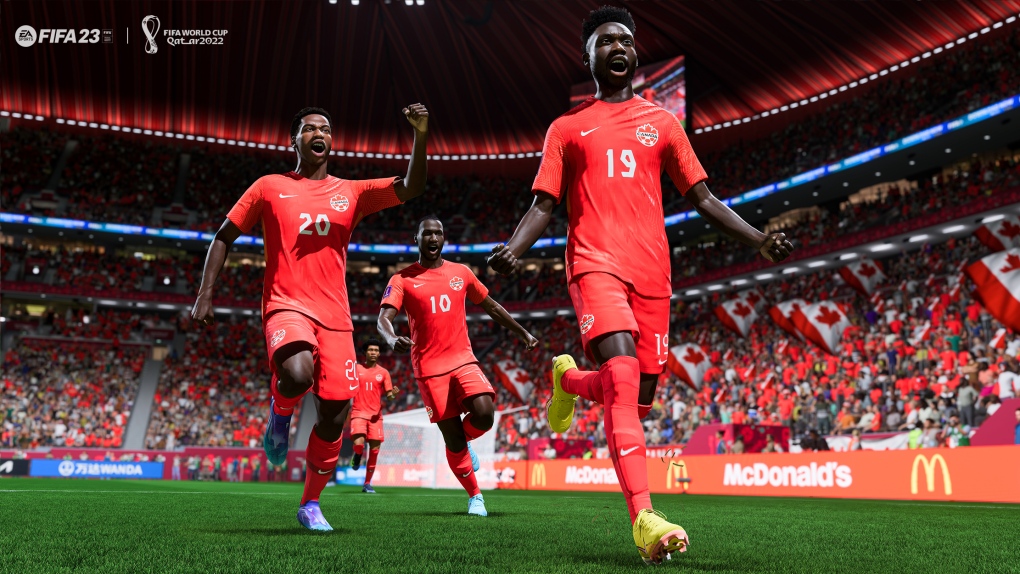 Throughout the late 1990s and early 2000s, the FIFA series witnessed significant advancements. The introduction of 3D graphics allowed for more realistic player models and animations, enhancing the overall immersion. Gameplay mechanics were refined, offering smoother controls and strategic depth.
Throughout the late 1990s and early 2000s, the FIFA series witnessed significant advancements. The introduction of 3D graphics allowed for more realistic player models and animations, enhancing the overall immersion. Gameplay mechanics were refined, offering smoother controls and strategic depth.
One of the notable milestones during this period was the introduction of licensed leagues and teams. FIFA secured partnerships with various football associations and clubs, enabling the inclusion of authentic jerseys, player likenesses, and stadiums. This added authenticity resonated with fans, elevating the gaming experience to new heights.
The Rise of Career Mode and Ultimate Team
As the FIFA series progressed, new game modes were introduced to cater to different playstyles. Career Mode emerged as a fan favorite, allowing players to manage their own football club, from player transfers to tactical decisions on the field. The depth of customization and simulation offered in Career Mode appealed to both casual and hardcore gamers, providing endless hours of gameplay.
In 2009, FIFA introduced Ultimate Team, a revolutionary game mode that combined elements of trading card games with football simulation. Players could build their dream squads by acquiring virtual player cards through packs or trading in the transfer market. Ultimate Team's addictive gameplay loop and the thrill of pack openings turned it into a massive success, generating significant revenue through microtransactions.
The Shift to Realism: Frostbite Engine and Motion Capture With the advent of next-generation gaming consoles and advancements in technology, the FIFA series underwent a visual and gameplay overhaul. EA Sports introduced the Frostbite game engine, known for its stunning graphics and immersive environments. The transition to Frostbite enabled developers to create photorealistic player models, dynamic lighting effects, and lifelike animations.
With the advent of next-generation gaming consoles and advancements in technology, the FIFA series underwent a visual and gameplay overhaul. EA Sports introduced the Frostbite game engine, known for its stunning graphics and immersive environments. The transition to Frostbite enabled developers to create photorealistic player models, dynamic lighting effects, and lifelike animations.
Motion capture technology played a crucial role in enhancing player movements and reactions. Professional footballers were enlisted to perform intricate motion capture sessions, capturing their dribbling techniques, celebrations, and even subtle gestures on the pitch. This attention to detail contributed to the authenticity of FIFA games, blurring the line between virtual and reality.
The Era of Esports: FIFA as a Competitive Platform
As esports gained prominence worldwide, FIFA emerged as a popular competitive title, attracting professional players and organizations. EA Sports launched the FIFA Global Series, a competitive circuit featuring regional qualifiers, live events, and the FIFA eWorld Cup. Players competed for lucrative prize pools and coveted titles, showcasing their skills on a global stage.
The accessibility of FIFA games, coupled with their realistic representation of football, made them ideal for competitive play. Professional football clubs also entered the esports scene, signing FIFA players to represent them in tournaments. The convergence of traditional sports and esports further solidified FIFA's status as a premier gaming franchise.
Challenges and Criticisms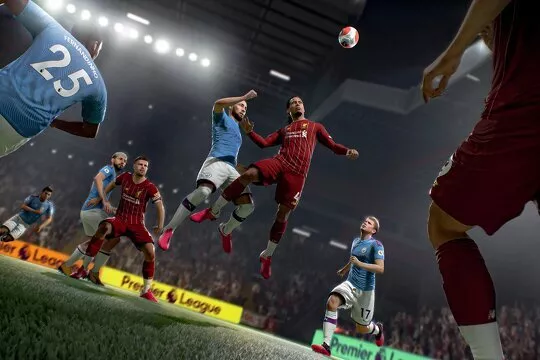 Despite its immense popularity, the FIFA series has faced its share of challenges and criticisms over the years. One recurring issue is the perception of annual releases as incremental updates rather than substantial improvements. Some players argue that each new iteration fails to innovate significantly, leading to a sense of stagnation in the franchise.
Despite its immense popularity, the FIFA series has faced its share of challenges and criticisms over the years. One recurring issue is the perception of annual releases as incremental updates rather than substantial improvements. Some players argue that each new iteration fails to innovate significantly, leading to a sense of stagnation in the franchise.
Another point of contention is the prevalence of microtransactions, particularly in game modes like Ultimate Team. Critics argue that the pay-to-win model creates an uneven playing field, where players can gain a competitive advantage by spending real money on virtual currency. This has sparked debates about the ethics of monetization in video games and its impact on player experience.
Additionally, the FIFA series has been criticized for its occasional lack of realism in gameplay mechanics and AI behavior. While efforts have been made to replicate the nuances of football, certain aspects, such as player positioning and ball physics, have drawn scrutiny from both fans and critics.
Looking Ahead: The Future of FIFA
As we look to the future, the FIFA series continues to evolve in response to technological advancements and changing player expectations. With the emergence of virtual reality (VR) and augmented reality (AR) technologies, there's potential for FIFA to offer immersive experiences that transcend traditional gaming.
Furthermore, ongoing improvements in artificial intelligence (AI) and procedural generation could enhance the realism and authenticity of FIFA games. Players may interact with dynamic environments where weather conditions, crowd behavior, and commentary adapt in real-time, creating a truly immersive football simulation.
Moreover, the integration of blockchain technology and non-fungible tokens (NFTs) could revolutionize the gaming industry, offering new avenues for player ownership and digital asset trading within FIFA games. This could potentially reshape the way players engage with in-game content and unlock new revenue streams for developers.
the FIFA series has come a long way since its humble beginnings, evolving into a global phenomenon that transcends boundaries of gaming and sports. From pixelated pitches to lifelike simulations, FIFA continues to captivate audiences with its immersive gameplay, authentic presentation, and competitive spirit. As technology continues to advance, the future holds endless possibilities for the FIFA franchise, promising exciting innovations and experiences for football fans and gamers alike.
Addressing Community Feedback and Innovation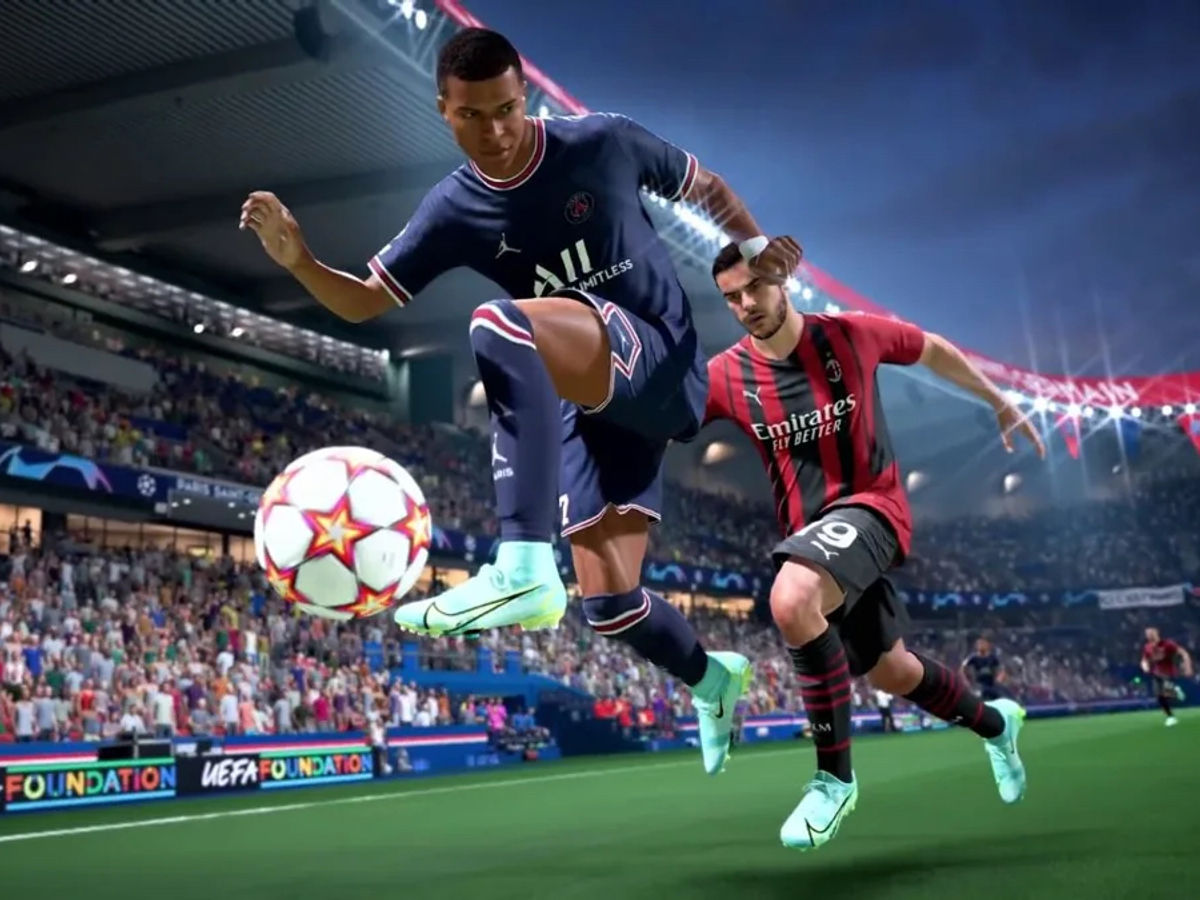 Despite the challenges and criticisms, EA Sports has shown a commitment to addressing community feedback and pushing for innovation within the FIFA series. One example is the introduction of Volta Football, a street football mode inspired by the FIFA Street series. Volta Football brought a fresh, fast-paced gameplay experience to FIFA, allowing players to showcase their skills in urban environments around the world. This mode tapped into the nostalgia of fans who fondly remembered the FIFA Street games while offering a modern twist on street football culture.
Despite the challenges and criticisms, EA Sports has shown a commitment to addressing community feedback and pushing for innovation within the FIFA series. One example is the introduction of Volta Football, a street football mode inspired by the FIFA Street series. Volta Football brought a fresh, fast-paced gameplay experience to FIFA, allowing players to showcase their skills in urban environments around the world. This mode tapped into the nostalgia of fans who fondly remembered the FIFA Street games while offering a modern twist on street football culture.
Moreover, EA Sports has emphasized player engagement and feedback through community-driven initiatives such as the FIFA Playtest program. This program invites players to participate in early access playtesting sessions, providing valuable insights and suggestions for improving future FIFA titles. By involving the community in the development process, EA Sports aims to create games that resonate with players and address their evolving preferences.
Expanding Accessibility and Inclusivity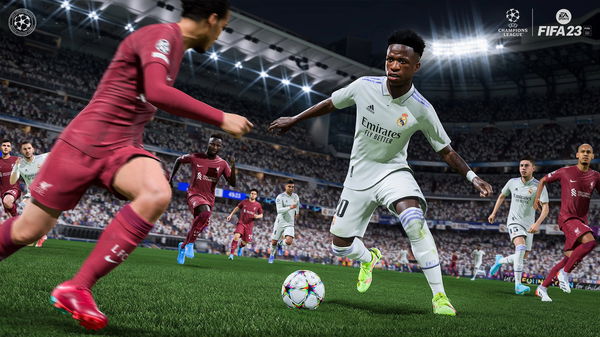 Another area of focus for the FIFA series is expanding accessibility and inclusivity to reach a broader audience. In recent years, efforts have been made to cater to players of all skill levels and abilities through features such as dynamic difficulty adjustment and accessibility options. These initiatives aim to ensure that FIFA games are enjoyable and accessible to players regardless of their experience or physical abilities.
Another area of focus for the FIFA series is expanding accessibility and inclusivity to reach a broader audience. In recent years, efforts have been made to cater to players of all skill levels and abilities through features such as dynamic difficulty adjustment and accessibility options. These initiatives aim to ensure that FIFA games are enjoyable and accessible to players regardless of their experience or physical abilities.
Additionally, FIFA has taken steps to promote diversity and inclusion within the gaming community. This includes featuring diverse player avatars, promoting women's football through the inclusion of female teams and players, and supporting initiatives that promote diversity and representation in gaming. By celebrating the diversity of the football world, FIFA aims to create a more inclusive and welcoming gaming experience for all players.
Exploring New Frontiers: FIFA in the Metaverse
Looking further into the future, the concept of the metaverse presents intriguing possibilities for the FIFA series. The metaverse, a collective virtual shared space, could serve as a platform for immersive social experiences centered around football. Imagine stepping into a virtual stadium filled with fans from around the world, watching live matches, and interacting with players in real-time.
In the metaverse, FIFA could transcend the confines of traditional gaming and become a dynamic social hub where players can connect, compete, and collaborate in new ways. Virtual reality (VR) and augmented reality (AR) technologies could enhance the immersion, allowing players to experience football like never before.
Moreover, the metaverse could open up opportunities for user-generated content and community-driven experiences within the FIFA ecosystem. Players could create and share custom stadiums, tournaments, and challenges, fostering a vibrant and participatory community. By embracing the potential of the metaverse, FIFA could redefine the boundaries of gaming and establish itself as a pioneering force in the evolving landscape of digital entertainment.
Conclusion: A Legacy of Innovation and Passion In conclusion, the FIFA series has left an indelible mark on the gaming industry, captivating millions of players worldwide with its immersive gameplay, authentic presentation, and competitive spirit. From its humble beginnings as a pixelated football simulator to its evolution into a global phenomenon, FIFA has continuously pushed the boundaries of innovation and technology.
In conclusion, the FIFA series has left an indelible mark on the gaming industry, captivating millions of players worldwide with its immersive gameplay, authentic presentation, and competitive spirit. From its humble beginnings as a pixelated football simulator to its evolution into a global phenomenon, FIFA has continuously pushed the boundaries of innovation and technology.
Despite facing challenges and criticisms along the way, FIFA has remained steadfast in its commitment to delivering engaging and authentic football experiences for players of all ages and backgrounds. With each new iteration, the FIFA series has evolved and adapted to meet the changing demands of its audience, while staying true to its core values of passion, authenticity, and inclusivity.
As we look ahead to the future, the FIFA series is poised to continue its legacy of innovation and excellence, embracing new technologies, and exploring new frontiers in gaming. Whether it's through the metaverse, virtual reality, or other emerging technologies, FIFA remains dedicated to providing players with unforgettable football experiences that inspire, entertain, and unite communities around the world.







































